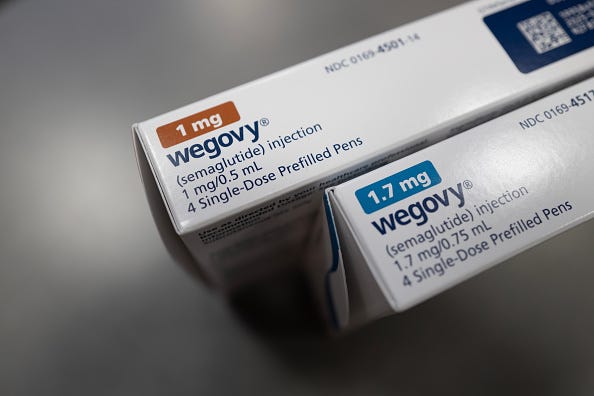
While GLP-1 drugs have burst onto the scene as helpful diabetes medications and weight loss drugs, new research may show that they also help with several other conditions, including cancer.
Ozempic, Wegovy, and Zepbound are just some of the GLP-1 drugs that have blown up in popularity throughout the last year for their impact on those looking to lose weight.
But now, researchers are looking at the medications as possible treatments for addiction, sleep apnea, and some cancers.
GLP-1 agonists help the brain regulate the body’s hormones, slow digestion, and reduce hunger. However, recent studies have shown promise as a means to prevent breast, colon, liver, and ovarian cancers, which are often driven by obesity and excess weight.
A study presented at the American Society of Clinical Oncologists in June found that bariatric surgery and GLP-1 medications dramatically reduced the risk of 13 obesity-related cancers.
The CDC reports that these cancers include adenocarcinoma of the esophagus, breast, colon, rectum, uterus, gallbladder, upper stomach, kidneys, liver, ovaries, pancreas, thyroid, meningioma, and multiple myeloma.
Among those in the study who had bariatric surgery, their risk of these cancers declined by 22% over 10 years compared to those who had no treatment.
However, for those who took GLP-1 medications, the risk dropped by 39%.
“I think a 39% risk reduction is one of the most impactful risk reductions we’ve ever really seen,” oncologist Arif Kamal said.
Kamal, an oncologist specializing in breast cancer as well as chief patient officer at the American Cancer Society, spoke with NPR about the research and the potential benefits of the drug.
Want to get caught up on what's happening in SoCal every weekday afternoon? Click to follow The L.A. Local wherever you get podcasts.
The study presented to the American Society of Clinical Oncologists isn’t the only of its kind either, as more researchers are working to uncover the additional benefits of the medications.
Last year, a research letter published in the journal JAMA Oncology suggested that GLP-1 drugs might reduce the risk of colon cancer, but not just for those who are overweight.
Another analysis in JAMA Network Open suggests that the drugs provide more protection against cancer for diabetic patients than insulin treatments.
But while the research is still relatively new, Kamal shares that the early results being found are promising and offer hope.
“It’s a hopeful story, which is, frankly, what people need,” Kamal said.
Follow KNX News 97.1 FM
Twitter | Facebook | Instagram | TikTok
